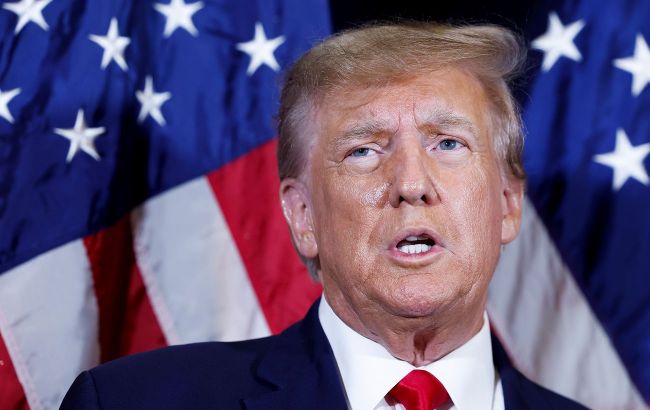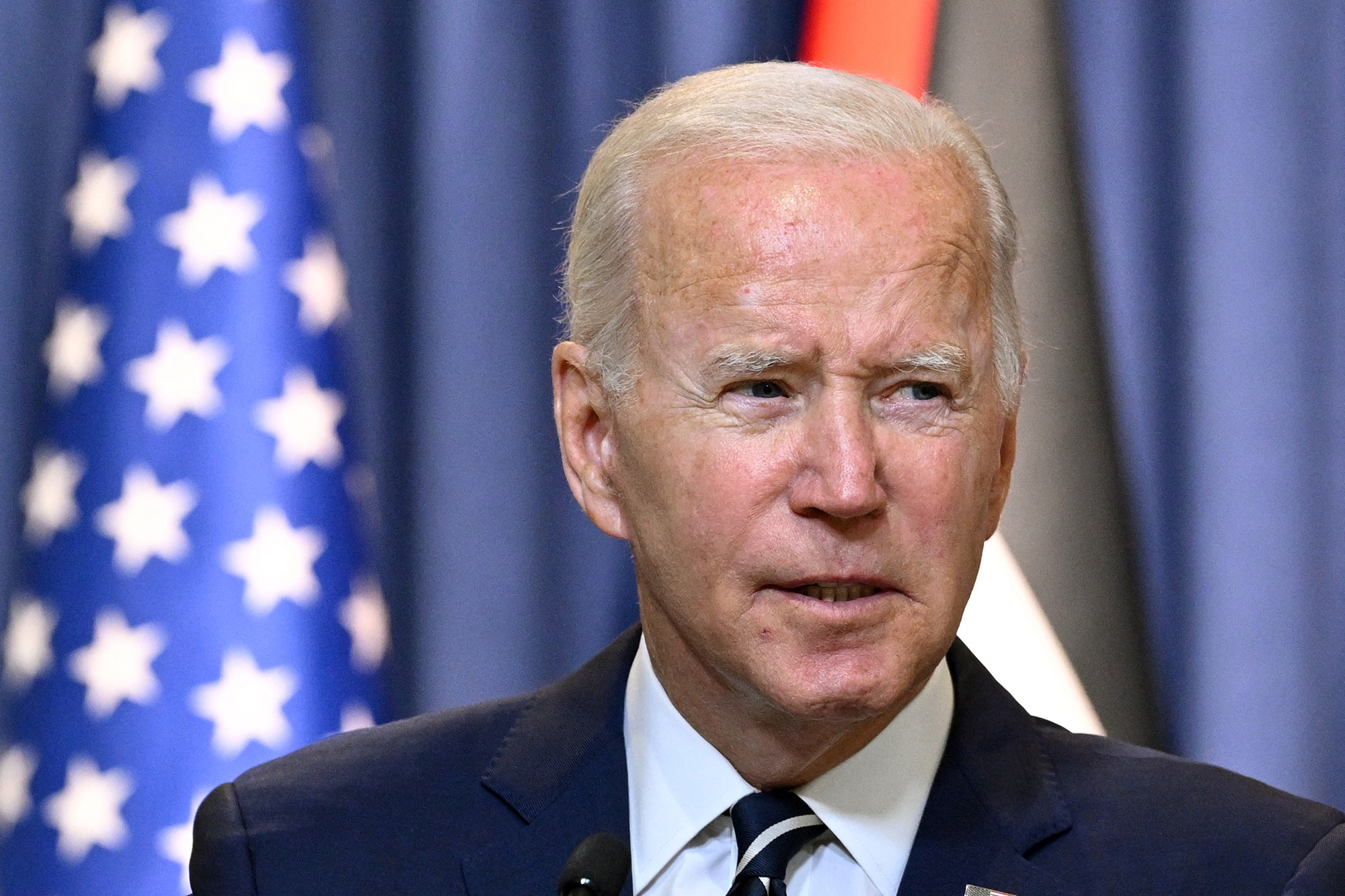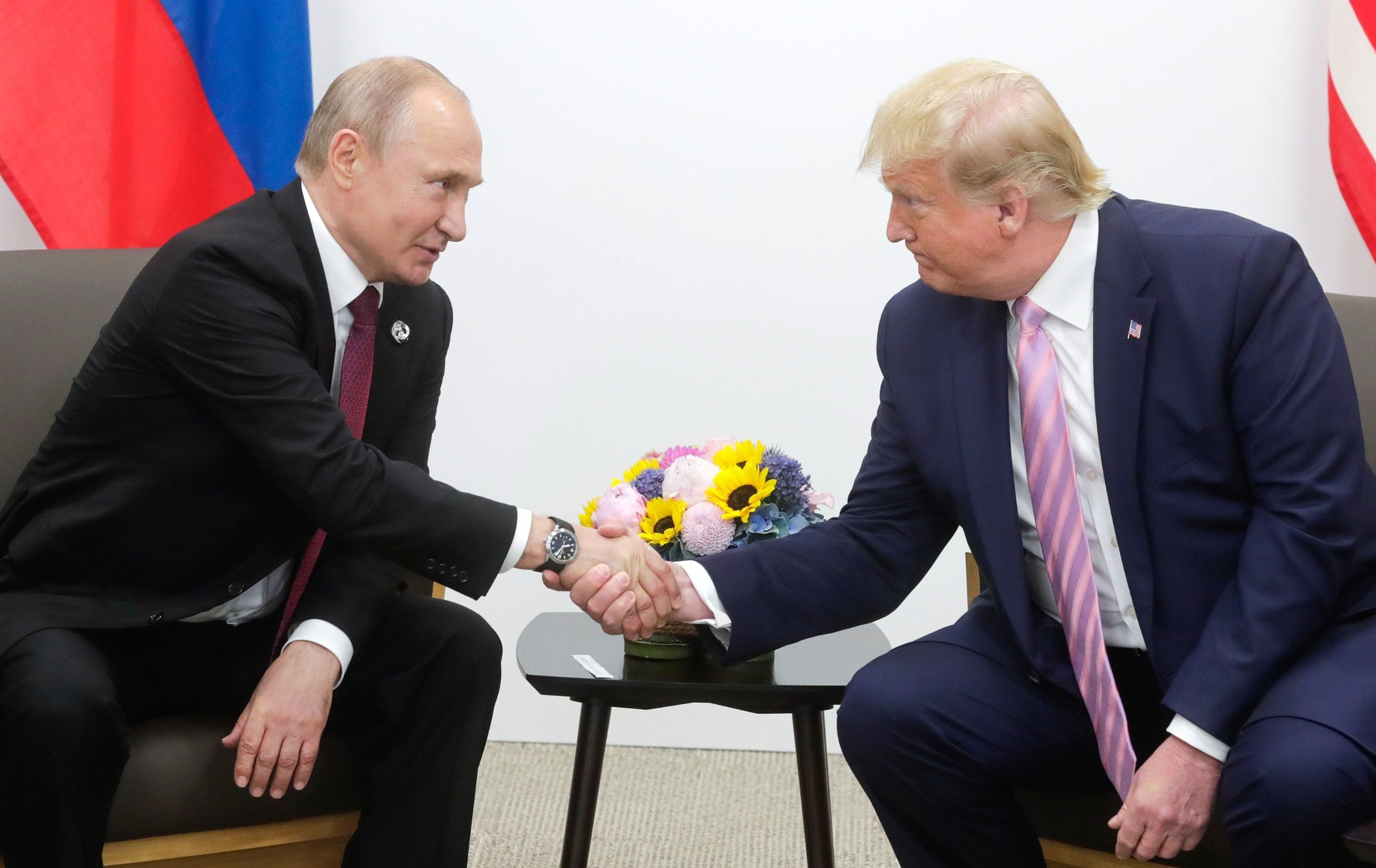Storm brewing: How Donald Trump approaches his second presidential term in US
 Former US President Donald Trump (photo: Getty Images)
Former US President Donald Trump (photo: Getty Images)
How Donald Trump is clearing the way to the presidency, why he is outperforming Joe Biden in the polls, and what Ukraine should expect from his presidency - read in the RBC-Ukraine article.
Sources used: The New York Times, The Atlantic, POLITICO, Donald Trump's public statements, and off-the-record comments from RBC-Ukraine's interlocutors.
Over the past few days, the last doubts have disappeared that Donald Trump will become the Republican presidential candidate in the November election. All of the American ex-president's many enemies have watched as the options that would have closed Trump's path to the nomination (and, likely, a new presidency) have been closed one by one.
In particular, the country's Supreme Court overturned the decision of the Colorado court, which had previously excluded Trump from participating in the primaries based on the 14th Amendment to the US Constitution, according to which a person who has participated in a rebellion against the state cannot hold public office. This refers to the events of January 6, 2021, when Trump's supporters, who disagreed with his election defeat and were incited by Trump himself, stormed the Capitol building in Washington, DC.
According to the Supreme Court, a separate law will be needed to apply this provision in practice, at the very least. Thus, no one will be able to remove Trump from primaries or elections anymore - the Colorado ruling is valid throughout the country.
In addition, the same Supreme Court has taken up Trump's appeal on his "absolute presidential immunity," which allegedly guarantees him no punishment for any actions committed in the presidential office. The case is proceeding slowly in the American way, with arguments from the parties expected to be heard only at the end of April.
By that time, the actual trial in the Capitol seizure case had stalled. In the end, it appears that no decision will be made in the criminal cases against Trump until after the November elections and even before the inauguration of the next US president in early 2025. Moreover, no one will put him behind bars. Thus, numerous analytical calculations about whether Trump will be able to run for office from prison and how he will rule the country from behind bars have lost all meaning.
Thus, winning the upcoming election has become even more important for Trump: if elected, he will have enough legal tools to help him dismiss cases against him.
 Storming of the Capitol by Trump supporters (Photo: Getty Images)
Storming of the Capitol by Trump supporters (Photo: Getty Images)
This week, Trump moved even closer to returning to the Oval Office with a landslide victory over his last opponent in the Republican primary, Nikki Haley. Out of the 15 states that held primaries on Tuesday, she won only one, with Trump taking the rest.
As a result, his gap with Haley in terms of the number of delegates to the Republican Party conference (each candidate in the primaries fights for these votes, which help to nominate him for president) has become quite obscene - more than ten times.
In this regard, Haley made a long-overdue decision to withdraw from the race. This left Trump as the only candidate from his party in the upcoming election, formally speaking. Of course, primaries will continue to be held in the future, as required by electoral procedures, but they make no practical sense.
Although some time ago, especially after the midterm congressional elections in 2022, it seemed that the ex-president's position was shaken, and someone else, such as Florida Governor Ron DeSantis, would become the party's candidate. But in the end, Trump beat everyone.
Age, economy, war
Trump not only managed to deal with his rivals within his party but also demonstrated a confident, several percentage points advantage over Joe Biden. While in Ukraine, a 5-7% gap is not a catastrophe for a lagging politician amid a campaign, in the United States it is considered a rather serious advantage.
More importantly, Trump is not just outpacing Biden in terms of public support but is also ahead in virtually all swing states, which in the American election system determine the winner.
Biden has several key problems that play into his opponent's hands. First and foremost, perhaps, is his age and physical condition. Although Biden and his team never tire of convincing Americans and the world that the president is full of energy and strength, Biden still finds reasons to talk about his fitness regularly. And Trump always uses these excuses.
The economic situation is also not playing into the hands of the current head of state. More specifically, the inertia of its perception by voters. The point is that Biden's economic policy, the so-called Bidenomics, has worked in practice, and the economy is showing objectively good performance. But the voters do not notice this yet, believing that "it was better under Trump." Of course, Trump himself is hyperactive in pushing this topic.
In addition, Biden's position has been seriously damaged by the unfavorable external environment. The withdrawal from Afghanistan, the actual surrender of the country to the Taliban, was the first painful stab. Then came Russia's full-scale aggression against Ukraine. And finally, a new war broke out in the Middle East.
The latter is the most unpleasant for Biden, given the anti-Israeli sentiment in the left wing of the Democratic Party. To win, Biden will need a so-called broad coalition of voters- when people of different views vote for the incumbent president, whose sympathies he will somehow have to win or at least not lose. According to sociology, only 83% of those who voted for Biden in 2020 are going to do so again (compared to 97% for Trump).
 US President Joe Biden (Photo: Getty Images)
US President Joe Biden (Photo: Getty Images)
Biden came to power on slogans about the future peaceful life of Americans - in contrast to the times of the crazy Trump. The United States, like the rest of the world, has found itself in a zone of unprecedented political turbulence for decades. And although Biden had nothing to do with the outbreak of a new war in the Middle East, he will have to deal with the consequences.
However, we should not think that victory is already in Trump's pocket, although its probability is already well over 50%. The former president has many electoral problems of his own. In particular, he has historically failed to gain popularity among the wealthy and well-educated residents of the American suburbs.
The primaries have clearly shown that the better educated a Republican voter is, the less likely he or she is to support Trump (at the moment, such people preferred Hillary).
It will be a very important task for Trump to win the sympathy of Haley's voters - according to polls, only half of them say they are ready to support Trump, while almost 40% want to vote for Biden.
However, according to many Republican analysts, this trend is only apparent in polls, and on Election Day, Republican voters will turn a blind eye and vote for Trump's party nominee rather than his rival.
Nevertheless, Trump will not win the election at the expense of his core, the so-called MAGA electorate (from Trump's main slogan: 'Make America Great Again' - ed.), he will not win the election without the support of moderate Republicans and especially independent (undecided) Americans, whose sympathies are now divided between Trump and Biden approximately equally.
Specter of dictatorship
As Trump's victory in the election became more and more likely, the American media published more and more analytical and predictive materials about what America would become under Trump, in all areas, from the rights of LGBT Americans to relations with China.
And the liberal media critical of Trump sometimes paint downright apocalyptic pictures of a far-right personalist dictatorship being built in the United States, sometimes even using words like "fascist" or "Nazi."
What almost all analysts agree on is that Trump's second term will be markedly different from his first. The ex-president has learned from his previous cadence, when his vigorous activity was often restrained by representatives of the establishment, and now intends to clean up the entire state apparatus, filling it with exclusively loyal functionaries.
Ukraine is certainly most interested in how Trump intends to fulfill his promise to "end the war in 24 hours." According to New York Times journalist Brett Stevens, Trump plans to make Ukraine as exhausted as possible, to run out of ammunition and weapons, and thus become more compliant and sit down with the Russians at the very beginning of Trump's second term.
If this is the case, this is very bad news for Ukraine, as Trump will do his best to disrupt the allocation of a new multibillion-dollar aid package to Ukraine, which has been trying to get through Congress since last fall.
The problem is that Trump is systematically increasing his influence within the Republican Party itself. In particular, the leader of the Republican senators, Mitch McConnell, who is a very active supporter of Ukraine, has declared his support for his candidacy in the election. McConnell, 82, said that he would soon step down, and Republican senators would get a new leader, who would almost certainly be imposed on them by Trump. And while Republicans in the upper house of Congress are generally much more positive about Ukraine than those in the lower house, this could change with McConnell's departure.
 Donald Trump meeting with Vladimir Putin (Photo: Getty Images)
Donald Trump meeting with Vladimir Putin (Photo: Getty Images)
However, we should not think that Trump's election victory is a guaranteed disaster for Ukraine. Things could turn out in unexpected ways.
For example, RBC-Ukraine heard an interesting theory from one of its interlocutors in the Ukrainian leadership. The idea is that Trump believes that if he comes to Putin with certain ideas for ending the war, he will accept them. If this does not happen, for example, Putin decides to continue fighting, the pendulum may swing in the opposite direction, and an angry Trump will simply overwhelm Ukraine with modern weapons in revenge against Moscow.
When RBC-Ukraine presented this theory to another informed source in the government, the response was: "Trump just doesn't know what he's going to do with Ukraine yet."
In this sense, Joe Biden's second presidential term - imperfect, sometimes slow, and overly cautious - still looks more comfortable for Ukraine. And for the whole world, too, precisely because of this predictability.

